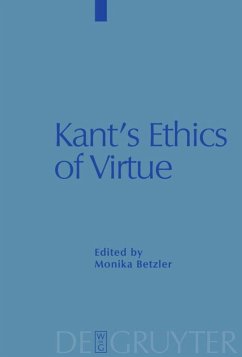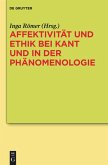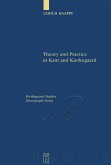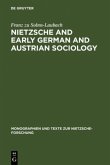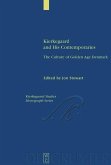In his Metaphysics of Morals (particularly in the Doctrine of Virtue), but also in other late works, Kant extends and refines the content of his earlier works on ethics (Groundwork and Critique of Practical Reason) to a considerable extent. These revisions and extensions not only show the limitations of an exclusive interpretation of Kantâ??s ethics as a deontological ethics of principles. His thoughts are also relevant for a large number of questions of theoretical morality currently under discussion. Thus, the distinction drawn in the Doctrine of Virtue between perfect and imperfect obligations informs the problem of the solvability of moral conflicts and the role of supererogatory actions. Kant goes further into the question of what it means to be a good person, what moral significance is contained in close human ties such as friendship, and what role is played by happiness and the so-called obligations towards oneself.
The papers each discuss Kantâ??s central ideas in the context of his earlier writings, but also within the context of our contemporary ethical debates. Thus attention is drawn to the significance and possible extent of an ethics of virtue understood in the Kantian sense.
In seiner Metaphysik der Sitten (vor allem in der Tugendlehre), aber auch in anderen Spätschriften nimmt Kant gegenüber seinen früheren ethischen Schriften (Grundlegung und Kritik der praktischen Vernunft) beachtliche inhaltliche Erweiterungen und Präzisierungen vor. Sie zeigen nicht nur, dass die ausschließliche Deutung der Kant'schen Ethik als deontologische Prinzipienethik verkürzt ist. Seine Überlegungen sind auch relevant für viele gegenwärtig diskutierte moraltheoretische Fragen. So ist die in der Tugendlehre getroffene Unterscheidung zwischen vollkommenen und unvollkommenen Pflichten aufschlussreich für das Problem der Lösbarkeit moralischer Konflikte und die Rolle supererogatorischer Handlungen.
Kant geht verstärkt der Frage nach, was es heißt, eine gute Person zu sein, welche moralische Bedeutung enge zwischenmenschliche Bindungen wie Freundschaft besitzen und welche Rolle die Glückseligkeit und die so genannten Pflichten gegen sich selbst spielen.
Die Beiträge diskutieren die zentralen Überlegungen Kants jeweils im Kontext seiner früheren Schriften, vor allem aber auch im Rahmen gegenwärtiger ethischer Debatten. Auf diese Weise wird auf die Bedeutung und die mögliche Reichweite einer kantisch verstandenen Tugendethik aufmerksam gemacht.
Hinweis: Dieser Artikel kann nur an eine deutsche Lieferadresse ausgeliefert werden.
The papers each discuss Kantâ??s central ideas in the context of his earlier writings, but also within the context of our contemporary ethical debates. Thus attention is drawn to the significance and possible extent of an ethics of virtue understood in the Kantian sense.
In seiner Metaphysik der Sitten (vor allem in der Tugendlehre), aber auch in anderen Spätschriften nimmt Kant gegenüber seinen früheren ethischen Schriften (Grundlegung und Kritik der praktischen Vernunft) beachtliche inhaltliche Erweiterungen und Präzisierungen vor. Sie zeigen nicht nur, dass die ausschließliche Deutung der Kant'schen Ethik als deontologische Prinzipienethik verkürzt ist. Seine Überlegungen sind auch relevant für viele gegenwärtig diskutierte moraltheoretische Fragen. So ist die in der Tugendlehre getroffene Unterscheidung zwischen vollkommenen und unvollkommenen Pflichten aufschlussreich für das Problem der Lösbarkeit moralischer Konflikte und die Rolle supererogatorischer Handlungen.
Kant geht verstärkt der Frage nach, was es heißt, eine gute Person zu sein, welche moralische Bedeutung enge zwischenmenschliche Bindungen wie Freundschaft besitzen und welche Rolle die Glückseligkeit und die so genannten Pflichten gegen sich selbst spielen.
Die Beiträge diskutieren die zentralen Überlegungen Kants jeweils im Kontext seiner früheren Schriften, vor allem aber auch im Rahmen gegenwärtiger ethischer Debatten. Auf diese Weise wird auf die Bedeutung und die mögliche Reichweite einer kantisch verstandenen Tugendethik aufmerksam gemacht.
Hinweis: Dieser Artikel kann nur an eine deutsche Lieferadresse ausgeliefert werden.

